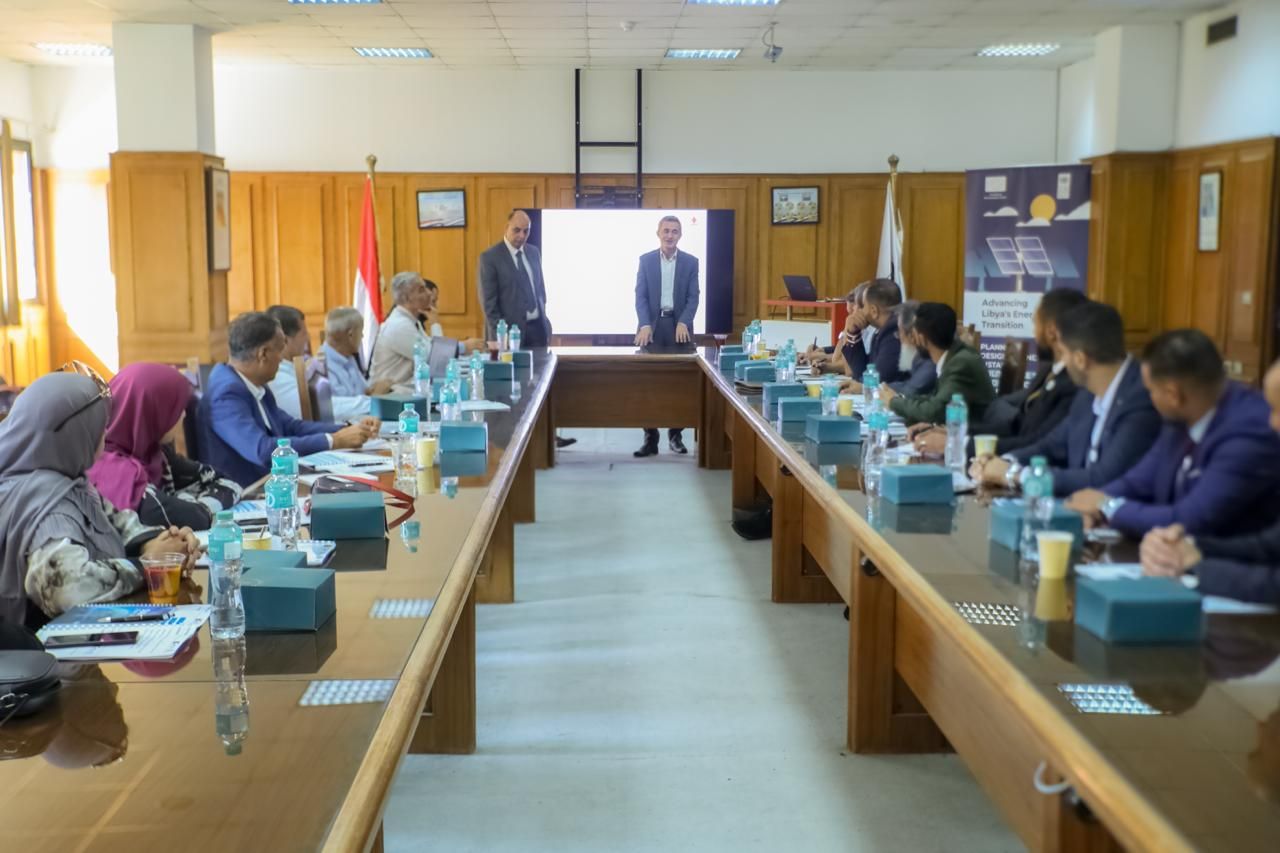
By Moutaz Ali
The Libyan Centre for Solar Power Research & Studies is seeking to cooperate with similar centres regionally and internationally. They recognise that, worldwide, successful solar power projects are cross- border.
“We are researching projects on exporting solar power to neighboring countries, especially to the EU in the north, such as Italy,” Dr Yousef Alnass, the General Manager of the centre, told Libya Energy in an interview at centre’s head- quarters in Tajoura, east of Tripoli.
“We are pushing towards collaborations with similar regional and international consultancy centres to work on proposing renewable energy projects to governments and I confidently believe that Libya has all the required potential to attract partners”.
However, governmental support is crucial he says.
Cooperation with national boards
“There is no doubt that renewable energy is the future for the world, and we must be aware of this in Libya. In this regard, we are cooperating with the ministry of industry to raise awareness of the sector’s importance for national policy-makers”.
In recent years, power cuts have occurred when generating stations ran out of gas and fuel oil supplied by the NOC affiliates to the electricity company, GECOL.
“Let’s think about how much money the Libyan state is losing by providing power stations with gas and fuel oil rather than exporting them. It shows how important it is to invest in solar power plants which could save so much money for the country,” explains Alnass, “Moreover, a solar power station’s staffing requirements are almost nothing compared to other traditional power plants” he explained.
The centre generates its own electricity using solar power and is linked to a traditional power station which during the day it feeds surplus solar generated electricity. It only uses conventional power at night.
“We linked with GECOL as a pilot to encourage it to create solar power stations. This could save massive amounts of fuel because part of their generating capacity would be free,” he said.
However, says Alnass, the authorities are still not sufficiently focused on the importance of solar power. He also thinks that successive issues that Libya has faced have prevented them from going ahead with plans for renewable power projects.
Researching different renewable energy and technology.
The centre does not restrict its research to solar power, but studies other renewable energy projects and technologies, such as power conservation to reduce electricity consumption or Biomass energy using a range of biofuels, such as methane (biogas) generated from wastewater and organic waste from farms, factories and homes.
“We research different renewable powers with leading industries in the country such as the iron and steel works in Misrata where currently they are using the problematic brown hydrogen which causes carbon dioxide emissions. We are working with them to switch over to green hydrogen which is very clean.”
The centre is also promoting private sector investment in renewable power projects.
“We have cooperated with several national engineering and power companies because we are relying heavily on investment by the private sector, which still needs to be developed.
We greet with open arms anyone who knocks on our door seeking help, support and advice, based on our expertise in renewable energy.”



